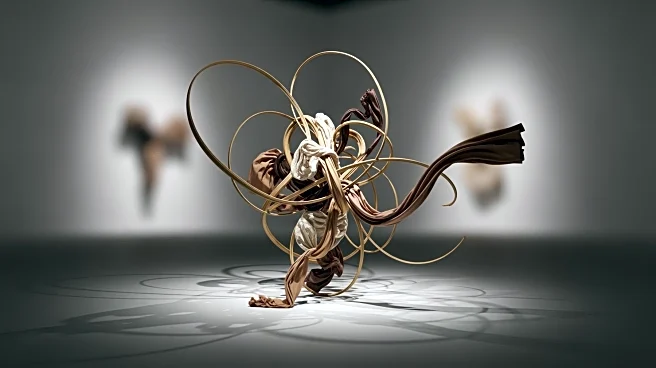What is the story about?
What's Happening?
During the recent Emmy Awards, host Nate Bargatze implemented a unique strategy to keep the ceremony within its three-hour timeslot. Bargatze announced that for every second a winner exceeded their allotted speech time, $1,000 would be deducted from a planned $100,000 donation to the Boys & Girls Clubs of America. Conversely, for every second saved, $1,000 would be added back to the donation. This approach aimed to streamline the event and focus on celebrating television achievements. However, the tactic led to rushed speeches and overshadowed the emotional impact of winners' reactions. Notable moments included Jeff Hiller's heartfelt speech and Hannah Einbinder's passionate message, both of which were affected by the time constraints. Despite the strategy, CBS and Bargatze ultimately donated $350,000 to the Boys & Girls Club, regardless of speech durations.
Why It's Important?
The approach taken by Bargatze highlights the ongoing challenge of balancing entertainment value with logistical constraints in awards ceremonies. While intended to maintain focus and efficiency, the strategy inadvertently detracted from the celebratory atmosphere and emotional resonance of the event. This incident underscores the importance of allowing winners to express genuine gratitude and share impactful messages without undue pressure. The decision to donate the full amount regardless of speech lengths suggests a recognition of the need to prioritize the event's spirit over rigid time management. This could influence future awards shows to reconsider how they handle speech durations and charitable contributions.
What's Next?
Future awards ceremonies may reevaluate their approach to managing speech times and charitable donations. Organizers might consider alternative methods to maintain efficiency without compromising the emotional impact of winners' speeches. Stakeholders, including television networks and event planners, could explore ways to balance time constraints with the need for authentic expressions of gratitude and celebration. Additionally, the public and media may continue to scrutinize how awards shows handle these aspects, potentially leading to changes in format or presentation.
Beyond the Headlines
The incident raises broader questions about the role of awards shows in promoting charitable causes and the ethical implications of using donations as a tool for time management. It also highlights the cultural significance of allowing artists to share personal and political messages during high-profile events. The strategy's reception may prompt discussions on the balance between entertainment and advocacy, as well as the responsibilities of hosts and organizers in shaping the narrative of such events.


















